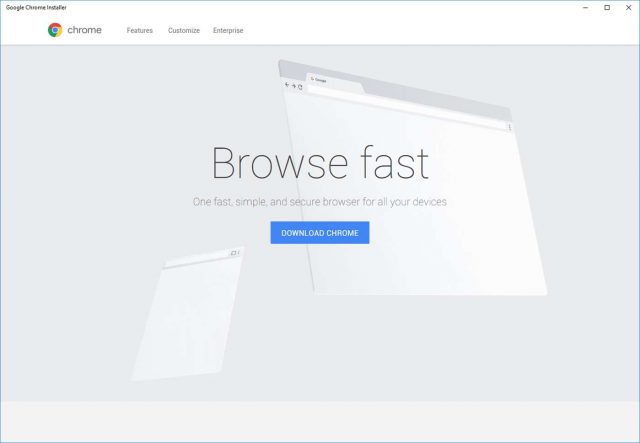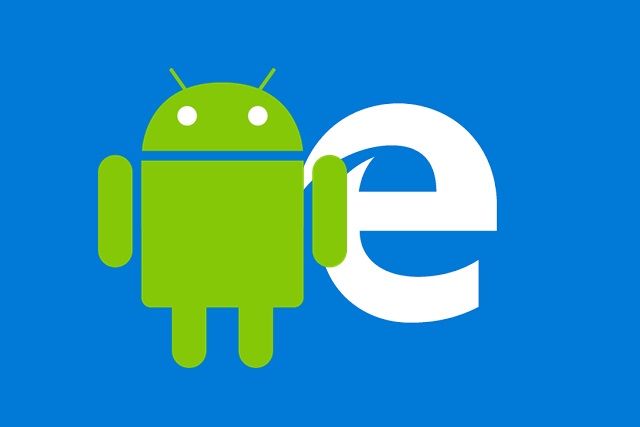
Mozilla's 2018 roadmap shows ad blocking (of sorts) is coming to Firefox
Ads may be central to the running of the web, but that doesn't mean people want to see them. Ad blocking is more popular than ever, and it's something that's been noted by Mozilla.
Revealing its 2018 roadmap for Firefox, the company says that an ad blocker is being added to the web browser -- albeit a limited one. On top of this, additional privacy controls are on the cards, as is a tool to block auto playing videos, and a breach alert system.

Opera 52 launches faster ad-blocking tool, adds support for multiple tab selection
Opera Software has released Opera 52.0, the latest version of its Chromium-based browser for Windows, Mac and Linux.
The main highlight in this new release is the unveiling of a faster ad-blocker tool. In addition, users gain the ability to select multiple tabs with a variety of related actions, including a brand new option for copying Web URLs. There are also new animations to accompany error and warning messages.

Vivaldi collaborates with DuckDuckGo to improve browser privacy
Vivaldi Technology has announced a new collaboration with the privacy-centric search engine DuckDuckGo. In coming together, DuckDuckGo will be made the default search engine in a Private Window.
The aim is to further increase the privacy offered by the Vivaldi web browser, helping to ensure that searches that are conducted in a Private Window really are private.

Firefox's 'master password' system can be easily bypassed using brute force
If you're a Firefox user, it's highly possible that you use the browser to store your login usernames and passwords for the sake of ease. Supposing you're a little security conscious, you may well have enabled the 'master password' function to prevent unauthorized access to your password database.
Well, there's a little bad news. It's nowhere near as secure as you may have thought. Wladimir Palant -- the guy behind the AdBlock Plus extension -- found that the system, which is used by both Firefox and Thunderbird, can be very easily brute-forced, leaving passwords vulnerable to malware and hackers.

Firefox Quantum 59 boosts page loading times, adds options for blocking intrusive website requests
Mozilla has released Firefox Quantum 59.0 for desktop, along with Firefox for Android 59.0 rolling out imminently.
The new version continues to refine performance with the promise of faster page-loading times, while the Home page gains one new customizable feature. Other highlights include improvements to the built-in screenshots tool and the ability to block website requests for advanced access or notifications.

How to export your saved passwords from Chrome
If you're a Chrome user, you may well have taken advantage of the password saving feature of the browser to make it easier to log into your various online accounts. However, it's not a perfect solution, and you may well have been considering one of the various password management tools that exist instead.
Until now, it has not been possible to extract the passwords and login data you have saved in Chrome ready to import into your new password database. This has now changed, so you can easily switch to a new password manager without having to retype everything by hand.

You'll be able to disable and hide Firefox Sync in Firefox 60
For some people, Firefox Sync is a great way to synchronize browser settings, add-ons, bookmarks and so on between computers. For others it's a privacy nightmare and a massive annoyance.
Starting with Firefox 60, Mozilla is making it possible to not only disable the feature, but also hide it. This might seem like a minor change, but for anyone irritated by the mere presence of Firefox sync, it's something that should have happened sooner.

Google explains how Chrome's new ad filtering feature works -- and why it's not your new ad blocker
Despite the fact that Google has a vested interest in online advertising, the company is about to enable its own built-in ad blocker (of sorts) in Chrome. Starting tomorrow, 15 February, the Chrome browser across all platforms will feature ad filtering to cut out those advertisements that fail to comply with the Better Ads Standards.
This is something that Google has talked about before, but ahead of the ribbon-cutting, the company has revealed how the feature works and what it means for Chrome users. The first thing to note is that it does not mean you should ditch your current ad blocker.

How many websites have crypto miners?
With cryptocurrencies reaching super high valuations, it should not come as a surprise that some websites use their visitors' processing power for mining. Question is, just how many do that?
According to a new report from security firm 360Netlab, that's 0.2 percent of websites. What's interesting is that porn sites account for nearly half of them at 49 percent. Other types of websites don't even come close.

Opera 51 unveils better Windows performance, host of functional tweaks
Just one month after its previous update, Opera Software has unveiled Opera 51.0, the latest version of its Chromium-based browser for Windows, Mac and Linux.
There’s no let up in new features and improvements in Opera 51. Chief among these is the promise of faster browsing on Windows, with Opera claiming it’s 38 percent faster than Firefox 58. This is down to the fact the program code is now compiled using Clang.

Opera 50 unveils a host of new and improved features, including anti-bitcoin mining protection
Opera Software has released Opera 50.0, the latest version of its Chromium-based browser for Windows, Mac and Linux.
As befitting such a landmark release, Opera 50 is packed full of new features. Chief among these is the addition of an anti-Bitcoin mining tool, but there’s also support for both Chromecast and Oculus Rift VR headsets, better protection for browsing sessions after crashes, and a major upgrade to its VPN service.

Google Chrome finally arrives in Windows 10's Store (kind of) [Update]
Google is notorious for its abysmal support of Windows 10's app store. A quick search reveals that there are only two apps available from the company, both of which are called Google. One is for PCs and the other targets mobile devices. Neither is of any real value to Google users on Windows 10 though.
If you want Gmail, Google Calendar, YouTube or Google Maps you will have to use the browser. However, there is a different story with Google Chrome. The browser just landed on Microsoft Store (Windows 10's app store), making it easier than ever to download it on a Windows 10 machine.

Chrome 63 is more secure than ever -- and uses even more memory
Google's Chrome browser has something of a reputation for being memory-hungry. With the release of Chrome 63 this image is not going to be shed -- a new security feature increases memory usage even further.
The latest desktop version of the browser includes a new Site Isolation feature which launches individual sites -- all sites, or a specific list -- in sperate processes. While this is something that will be of particular interest to enterprise users because of the added security it brings, it's something that will appeal to any security-minded user who is willing to shoulder a 10-20 percent increase in Chrome's memory usage.

Vivaldi browser now available for Raspberry Pi and other ARM based Linux devices
Vivaldi, the new web browser from Jon S. von Tetzchner, the former co-founder of Opera, is already available for Windows, macOS and Linux (x86/x86_64), but from today you can now run it on ARM based Linux devices, including Raspberry Pi.
The speedy browser offers useful built-in functionality such as tab grouping, screenshot capture, and ability to take notes. Part of Vivaldi’s appeal is it’s highly customizable, and the experimental new build offers even more options for tinkerers.

Microsoft Edge beta for Android gains password syncing and more
Microsoft has just given mobile users a more compelling reason to use Edge as their web browser -- and heaven knows one was needed. The latest update to the mobile browser brings a genuinely useful feature: password syncing.
The announcement that Edge was coming to Android and iOS came somewhat out of the blue, and now it seems that Microsoft is intent on making it a real contender for the mobile browsing crown. Password syncing is the headline addition to the browser, but it's not the only thing that's new.
